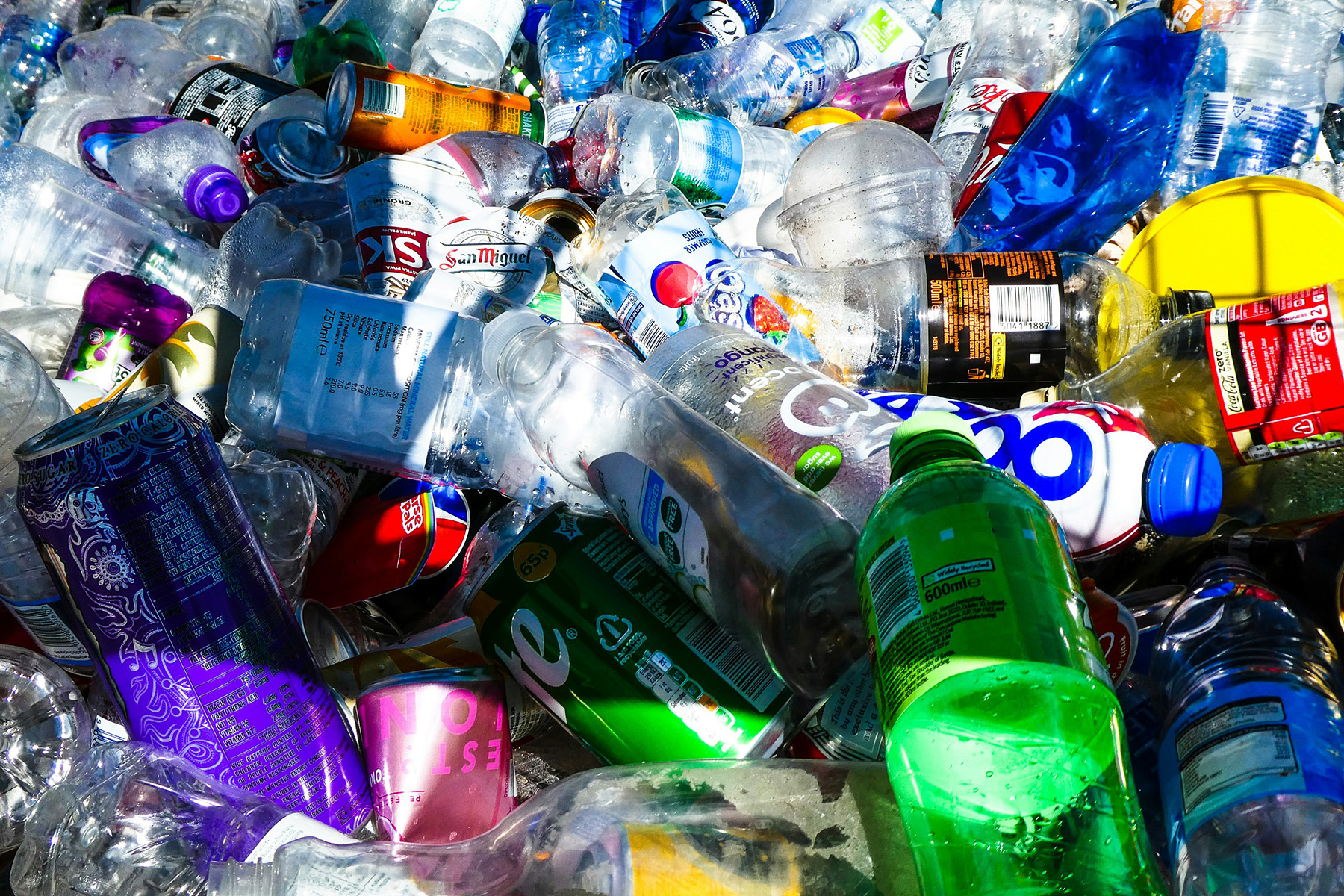Converting plastics into low-carbon hydrogen
Photoreforming is the use of light energy to drive the conversion of waste feedstocks into sustainable fuels and/or chemicals, such as the production of hydrogen from biomass using sunlight.
In recent years, this approach has been applied towards a different feedstock – waste plastics – a response to the growing environmental concerns posed by such materials.
Protonera’s innovative approach combines photoreforming with an enzymatic pre-treatment step which allows unsorted waste plastics to be converted into a variety of breakdown products, including high-value monomers and oligomers. For example, PET (polyethylene terephthalate) can be enzymatically converted into ethylene glycol and terephthalic acid. When subsequently irradiated in the presence of a photocatalyst, the breakdown mixture can then generate hydrogen and valuable liquid products, such as formic acid.
The innovative integration of the mild enzymatic pretreatment step (at near neutral pH and moderate temperatures) with photoreforming allows Protonera to circumvent the harsh alkaline pretreatment approaches (pH > 14 and elevated temperatures) used conventionally. Green hydrogen evolution activity is also enhanced, thereby making the process economically and sustainably viable.
Technology overview
- The technology can be used to convert waste plastics into high purity green hydrogen
- The yield of hydrogen production is improved by first the plastic(s) with a cheap, recyclable catalysts
- Costs of hydrogen production are estimated to be lower than for conventional alkaline pretreatment approaches
Benefits
- Utilises waste plastics in a low energy process
- Removes the need for costly and hazardous alkaline pre-treatment processes
- Produces large quantities of high purity green hydrogen
- Additional revenues may be recouped either from recovering high value monomers or other chemicals
Applications
Protonera’s technology could be of interest to:
- Plastic recyclers
- Manufacturers and downstream convertors of plastics
- Members of the green hydrogen supply chain
Founders
Professor Erwin Reisner | Yusuf Hamied Department of Chemistry (cam.ac.uk)
Erwin’s research group develops new concepts and technologies for the conversion of solar energy and renewable electricity into sustainable fuels and chemicals for a circular economy. Central themes include the upcycling of plastic and biomass waste as well as the use of carbon dioxide and water to produce green fuels and chemicals for a sustainable future.
Dr Chengzhi Guo | Department of Biochemistry
Jack has a PhD in Biochemistry from the University of Cambridge and is a co-founder and the CEO of Protonera.
Enquiry for Protonera: Converting plastics into low-carbon hydrogen
Tags: plastic waste, plastics, Protonera, solar, Sunlight




